

José Ramírez I began his training in the workshop of Francisco González in 1870. He soon became independent and in 1882 he opened his workshop. First it was in the Rastro and later in Concepción Jerónima Street number 2. From that very moment, a tradition of guitar making began, which was passed down from parents to children until reaching the current 4th and 5th generations. At the moment, Cristina and José Enrique Ramírez, are running the company under the supervision of Amalia Ramírez.
Little by little, José Ramírez’s guitar workshop became a key cog in the Madrid School of Guitar makers, thanks to the improvements they applied to the instrument and the training of professionals who worked in his workshop, who later became independent.
Today it is considered to be one of the most important Spanish guitar makers in the world and the oldest company in the direct line (from father to son), as evidenced by the plaque “Comercios Centenarios” that the City Council of Madrid placed at its entrance. This centenary trajectory endorses our title of experts in the Spanish guitar (flamenco and classical) at the service of the guitarist.
Our philosophy is based on five words, which constitute five of our basic pillars and represent our five generations of guitar makers:
Tradition, Experience, Quality, Innovation and Professionalism.
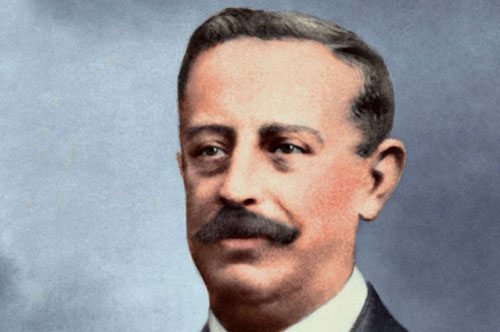
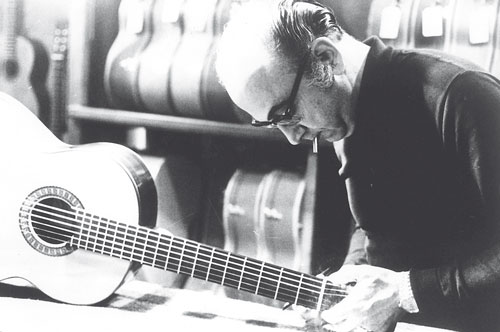
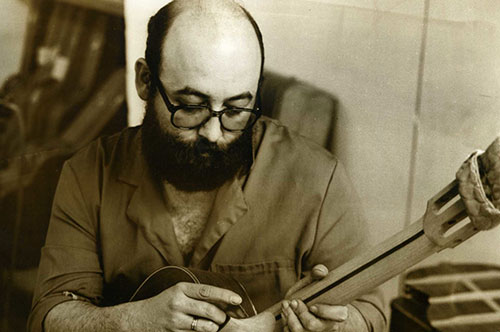
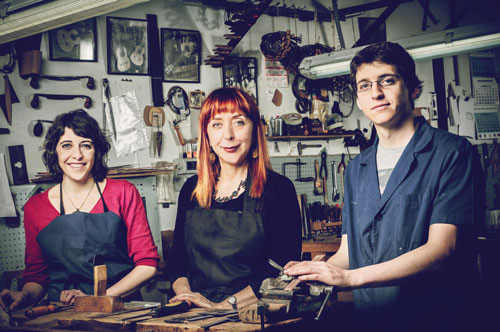
Our history
1858 - 1923
The founder of this dynasty, José Ramírez de Galarreta y Planell, was born in Madrid in 1858. At the age of 12 he entered as an apprentice in the workshop of his teacher, Francisco González, whose guitar shop was located in the Carrera de San Jerónimo in Madrid.
1864 - 1916
In 1864 Manuel Ramírez de Galarreta y Planell was born in Alhama de Aragón. Although the family’s habitual residence was Madrid, the father’s profession led them to live in Madrid for some time. Manuel learned from his older brother (José Ramírez I) the trade of guitar maker. At the age of 27, back in 1891, he decided to become independent.
1885 - 1957
In 1885 José Simón Ramírez de Galarreta y Pernías was born. He grew up in his father’s guitar workshop and learned the trade with him. In addition to being a guitarist, he was a guitarist and, at the age of 20, he was hired to do a two-year tour of South America.
1922 - 1995
Jose Ramirez III
José Ramírez Martínez was born in May 1922. He began to work in his father’s workshop at the age of 18; and although he did not enjoy any privileges, he was soon admitted as a first class journeyman and soon began to experiment in order to further develop the guitar as a concert instrument.
1953 - 2000
Jose Ramirez IV
José Enrique Ramírez García (José Ramírez IV) was born in Madrid in May 1953. In 1971 he entered the guitar workshop as an apprentice at the age of 18 and in 1977 he reached the rank of first officer. In 1988 he took over the management of the business together with his sister Amalia.
2000
Born in Madrid, she began her apprenticeship in the workshop in 1976 under the guidance of her father. He had to stop his training during the period in which he was training in other disciplines, which would later help him to carry out his work in the company.
2000
A long time ago a guitar maker asked Cristina: “How did your father get the two of you to carry on the tradition? My son doesn’t want to continue, he prefers to take another path”. The answer was none other than “having had freedom of choice and support in decisions about our future“.
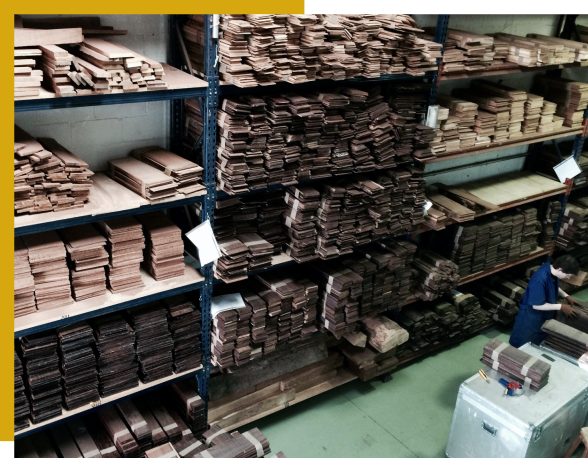
The age of
OUR WOODS
As a century-old company, we are fortunate to have inherited wood from previous generations between 60 and 40 years old. In the construction of our guitars, we use woods that have been naturally dried for their stability against humidity and dryness changes, and for the crystallization of their resins that provide better sound quality.
As we are consuming them we are replacing them to promote this form of drying. In woods that we have used more recently, such as Madagascar rosewood, the minimum natural drying time for its use is 10 years.
The wood we currently purchase for our instruments comes from sources committed to responsible trade that promotes sustainable forest management in accordance with CITES regulations.
